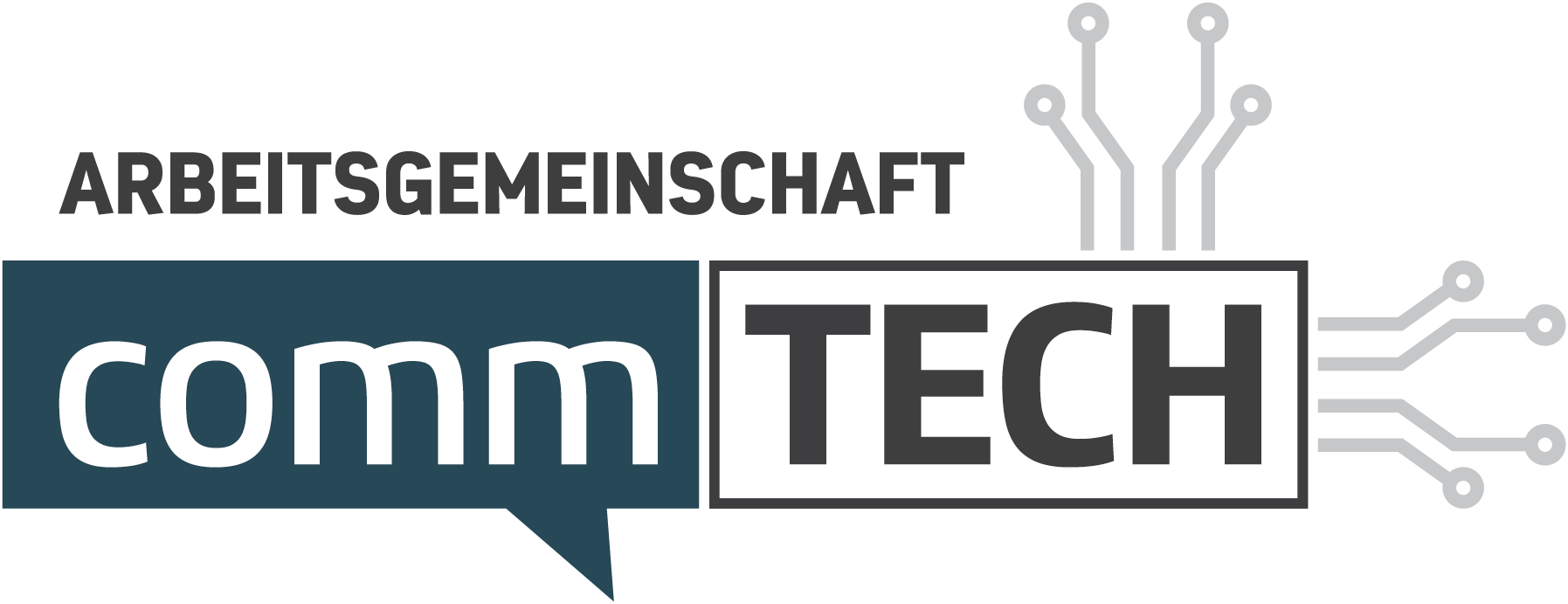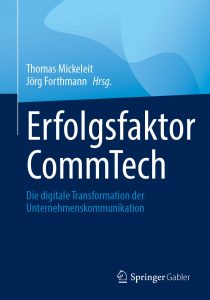- 4. October 2023
- Posted by: Die Redaktion
- Category: BEST PRACTICES

Interview with Maike Molling: Measuring success in IC

Maike Molling has been Vice President Strategy & Employee Communications at E.ON Energie Deutschland, the sales subsidiary of E.ON SE, since November 2022. The communication scientist joined the company in 2019, previously working on the agency side as a consultant at LoeschHundLiepold Kommunikation. Maike Molling is massively building up the data competence of the IC at E.ON.
AG CommTech: The fact that only a quarter of ICT departments systematically collect and evaluate data is one of the devastating findings when it comes to the digitization of communication processes. What was the trigger at E.ON Energie Deutschland for you to take on the topic of “data in IC”?
Maike Molling: There were a few triggers, one of which was a classic: Shortly after I moved to Internal Communications at E.ON, I was due for another annual reporting. And while External Communications was able to prove its value contribution with reach and reputation effects, we in IC were desperately searching for usable KPIs that went beyond the not very meaningful number of intranet news items. This annoyed us as a team, because we are firmly convinced of the value and relevance of internal communications – especially in these times of permanent crises, hybrid working environments and a shortage of skilled workers. But of course we also have to make this value comprehensible – in order to prove to management our contribution to the company’s success and to be able to act confidently as a strategic player. This self-image was the basis for many changes, from the development of a KPI-based strategy and appropriate topic management to data-based and target group-focused content production.
AG CommTech: It is well known that a lot of data is scattered among different functions such as marketing or HR or others. How do you manage to bring the interests together and build a “data lake”?
Maike Molling: We started collecting data in a very pragmatic way: What data do we already have, in what form are they available, how often are they collected, what conclusions could we draw from them for IC? Of course, it is also worthwhile to look beyond the traditional communication channels. Many departments were pleased that we were able to generate added value for communications from the data they collect for their own purposes. The basis for such cooperation is mutual trust. We explain exactly what we intend to do with the data, what we will and will not use it for. And the truth is that a lot of data that we would like to use to optimize communication is not even collected or released due to co-determination or data protection guidelines. Here, it is important to stay tuned and to remain in the exchange with good, data-based arguments.
AG CommTech: Data is needed to gain insights into the interests and needs of employees and to communicate precisely on the right channels. What insights do you have at E.ON about your employees? How did you go about it?
Maike Molling: As in many companies, we also conduct regular surveys – for example on employee satisfaction. However, the number of questions that we as IC can contribute and from which we can draw concrete conclusions for our work is limited. Therefore, we have proceeded qualitatively. We conducted many interviews with colleagues from a wide range of departments and levels and listened first: What do they want from us, which channels do they use, which formats are helpful for them? We translated the findings from these surveys into a persona model and identified various communication types that serve us very well, especially when planning larger campaigns or advising on more critical communication occasions. Quantitative validation remains on our wish list. Until that happens, we’ll make do with focus groups. There, we regularly exchange ideas with representatives of our personas. This ranges from A-B testing for content production, to feedback on campaigns or input for the development of new formats.
AG CommTech: Would communicators like to have a fancy dashboard where all the data flows together and is visualized? Does this exist at E.ON or how do you proceed?
Maike Molling: Yes, we now work with a PowerBI dashboard. We started with a presentation in Excel and PowerPoint, but understood quite quickly: The comprehensible visualization of data is an important success factor. On the one hand, this makes the data interpretable for people without a data background, which is currently still the case for many comms teams. On the other hand, because it is precisely the history and trend analyses that are automatically created in the dashboard that provide valuable, additional insights. The fact that many IC applications do not yet provide interfaces presents us with challenges. Overall, there is still a lot of potential for development – both at the tool level and in the application of CommTech in IC. There are still many data treasures to be unearthed, and the increasing use of AI is sure to take us to a whole new level in this area as well.
AG CommTech: The use of LLMs (Large Language Models) such as ChatGPT is currently experiencing a steep upswing, especially in IC. What opportunities do you see for your communication?
Maike Molling: We are currently using the new possibilities in two areas in particular: In routine tasks, which can be completed much more efficiently thanks to AI, and as a means of combating the fear of the blank page. Tools like ChatGPT can be a source of inspiration and a sparring partner here. In my view, the prerequisite for AI to become a success factor in IC is that we integrate these tools into our standard toolkit and act as experts. Only when we use them routinely can we fully exploit the potential, recognize where the limits lie and, not least, advise others on how to use them.

